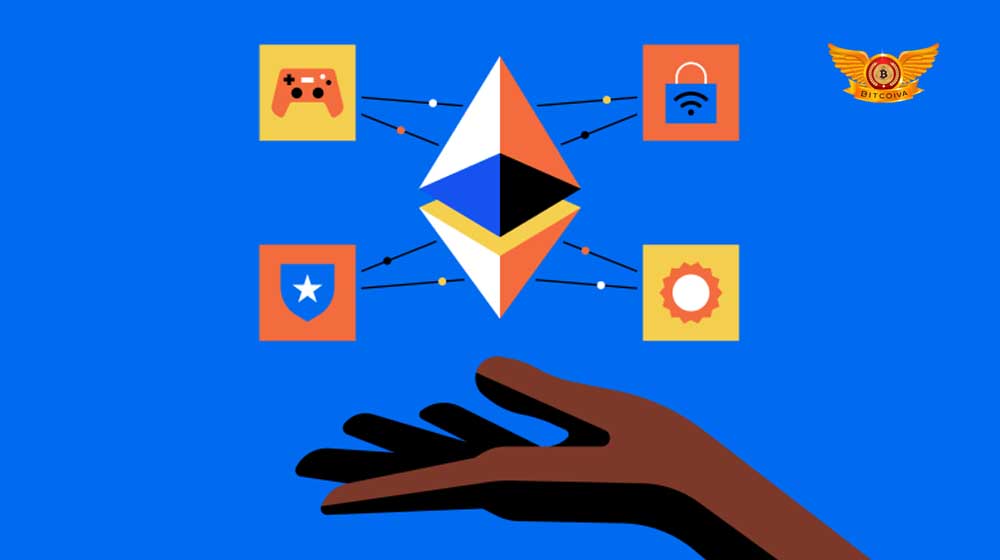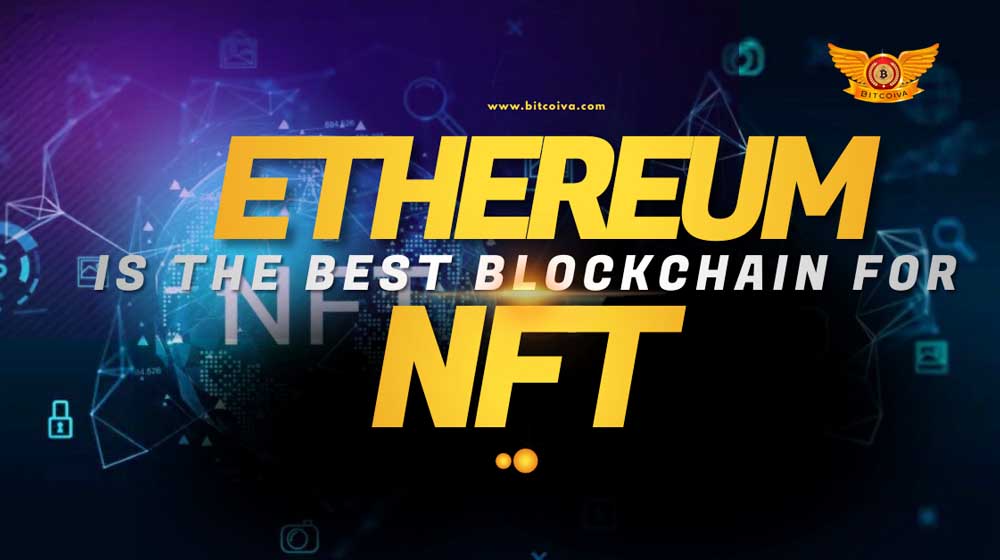What Exactly is NFT
NFTs tokens are used to signify ownership of certain goods. We can tokenize items like works of art, valuables, and even real estate thanks to them. Protected by the Ethereum NFT blockchain and can only have one legitimate owner at a time; nobody can change the ownership record or create a new NFT by copying and pasting an existing one.
Infusible Token referred to as NFT. Your furniture, a song file, or your computer could all considered non-fungible in terms of economics. Due to their distinctive characteristics, some goods cannot substituted for other items.
Contrarily, fungible goods are exchangeable because their worth, not their special qualities, determines them. Because on crypto exchange India one ETH or $1 USD can exchanged for another, for instance, they are both fungible.
What Exactly is Ethereum
Ethereum is a decentralized blockchain platform that creates a peer-to-peer network for safely executing and validating smart contract application code. Participants can do business with one another using smart contracts without the need for a reliable central authority. Participants have complete ownership and visibility over transaction data since transaction records are immutable, verifiable, and securely distributed across the network. Ethereum accounts that users have created both send and receive transactions. As a cost of processing transactions on the network, a sender must sign transactions and use Ether, Ethereum’s native coin.
Why Ethereum used for NFTs
NFT transfers made simple on the Ethereum network, which supports smart contracts. A report asserted that wallets like metamask “designed in a way. That the NFT had to be compatible with the Ethereum virtual machine” and that it also includes a token standard called ERC-721 for NFT minting.
The EVM functions as a decentralised computer with the capacity to manage several Ethereum network projects. This ultimately compelled NFT developers to create Ethereum by requiring them to guarantee that their applications function on the EVM platform.
However, due to various restrictions on the Ethereum blockchain, NFT developers have been looking at other blockchain networks, such as the Solana blockchain.
How Ethereum NFT Differs from Solana NFT
Different consensus mechanisms employed by the top cryptocurrency in India, like Ethereum and Solana. Ethereum uses proof-of-work, which creates a more decentralised network with limited scalability. The dreaded scalability problem that jeopardised its NFT and DeFi market dominance addressed with the ETH 2.0. As a result, unless the 2.0 upgrade carried out right away, the blockchain leader risked losing its position.
In comparison, Solana uses a proof-of-stake and proof-of-history mix, a less secure but more effective technique that enables quick and affordable transactions utilizing its native SOL. The fact that Ethereum is a developed project with a sizable market share, however, boosts the confidence of producers in minting NFTs on the Ethereum network.
The open NFT market in Solana known as SolSea. It gives authors the freedom to select and include licences while minting NFTs. Having said that, both makers and collectors are aware of what they are purchasing. Another well-known NFT marketplace on Solana is Solanart, which debuted earlier than SolSea.

Why use Ethereum Instead of Bitcoin for NFTs
Ether’s primary objective is not to establish itself as a new monetary system, but rather to make the Ethereum smart contract and decentralised apps (DApps) platform operations easier to use and monetize. One of the top 5 cryptocurrency in India, Bitcoin, however, referred to as a peer-to-peer electronic cash system by Satoshi Nakamoto.
Non-fungible tokens, which the Bitcoin blockchain does not support, are created using smart contracts that assign ownership and regulate the transferability of NFTs. NFTs are not interchangeable, hence they are not fungible. The value of each Bitcoin will remain the same, but the value of each NFT may vary depending on the underlying asset it represents.
As an illustration, when someone creates or mints an NFT, they are actually running code that is kept in smart contracts that adhere to different standards, such ERC-721. The blockchain, which is used to run the NFT, is where this information is kept.
Along with the aforementioned, each token also has a unique identity that is connected to a single Ethereum address. However, because each token is based on Ethereum, its owner can be easily identified, and it may be bought and sold on any NFT exchange or cryptocurrency market that also uses Ethereum on the best cryptocurrency exchanges in India.
Which Blockchain is the Best for NFT
When selecting a blockchain for issuing NFTs, such as Ethereum for NFT development, make sure its smart contracts are reliable. You should also look at the blockchain’s fee structure, security features, and transaction processing time, as well as consider any forking risks.
NFTs represent a sizable market segment in the bitcoin industry. They give individuals who might not have otherwise had touch with cryptocurrencies more exposure to them. They also actively contribute to the widespread use of blockchain technology due to their tight ties to video games and digital art.
However, a key element of distributed ledger technology’s overall security is the robustness of its smart contracts. For the highest level of efficiency and dependability, smart contracts must undergo rigorous testing to ensure the lowest possible risk of outages, security breaches, and hackers.
Ethereum NFT
Additionally, NFT-based transactions need cost-effective solutions, which is essential for utilizing and adopting nonfungible assets.
Because of this, the feeless option is the best choice when it comes to the pricing structure for NFTs on the blockchain.
Nonfungible features are vulnerable to hard forks because their integrity is put in jeopardy by copying NFTs. Designing NFTs and their marketplaces on fork-resistant blockchains is therefore essential.
Similar to speedier finality, as blockchains are immutable by nature, attackers have less time to compromise the digital ledgers. The best platforms for developing NFT marketplaces are those that enable quicker transaction finality while preserving decentralization.
In addition to these factors, the final decision about the blockchain for NFT development depends on your objectives, including the reasons why you want to acquire NFTs, your financial situation, and your investment goals. Before spending your hard-earned money, you should do your homework and compare several NFT blockchains if you have clarity on the questions.
Visit us at: www.bitcoiva.com

